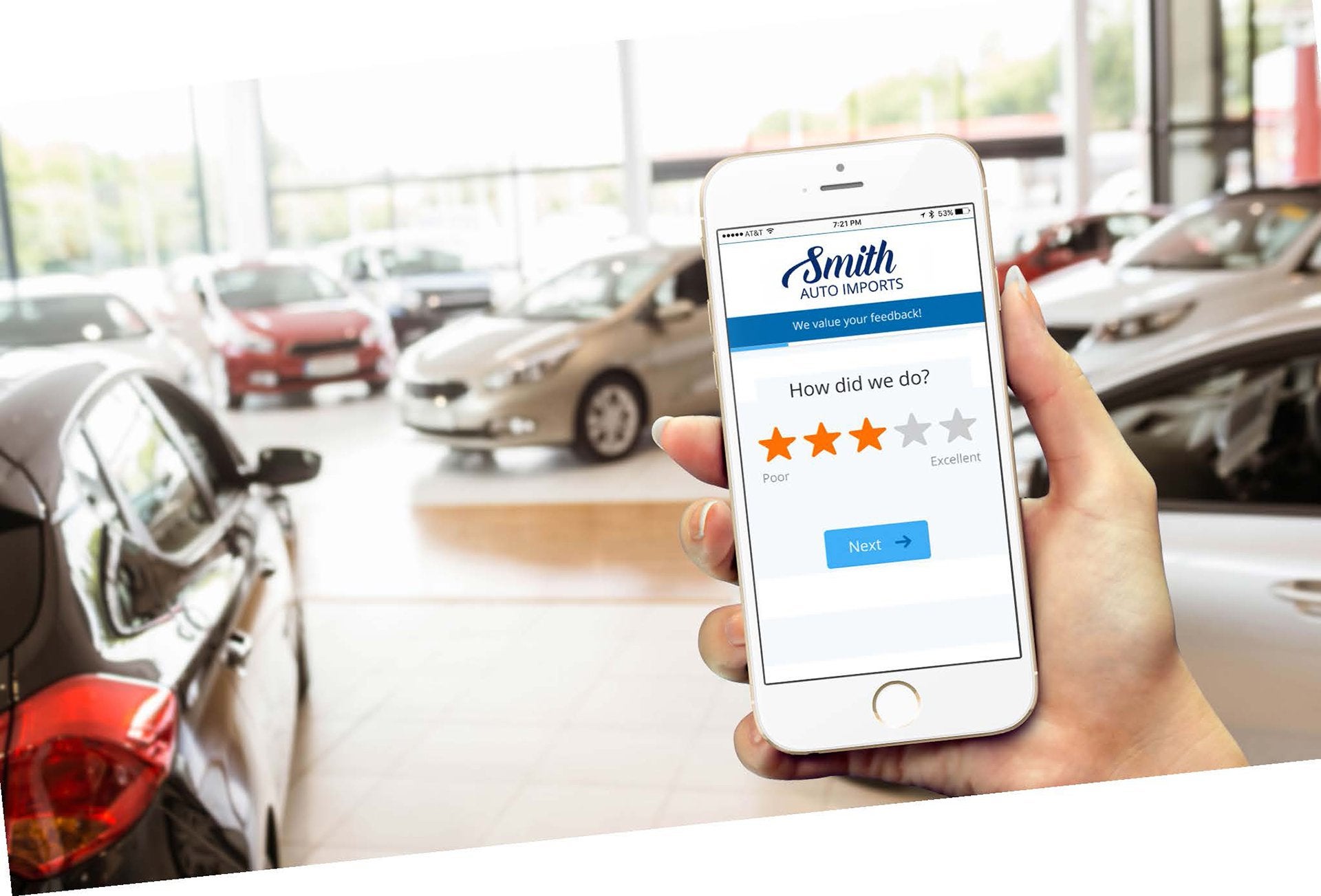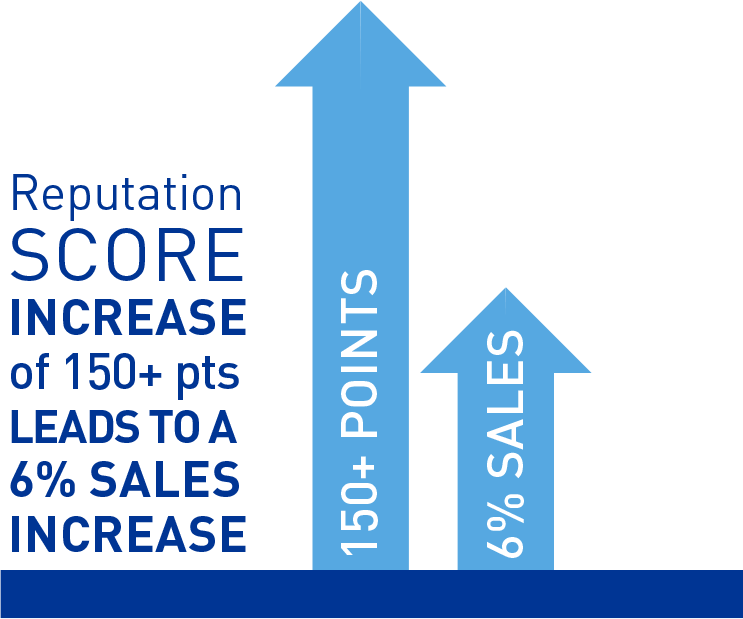Higher Reputation Score Boosts Auto Sales
Reputation Staff Writer

Strong Star Ratings and Reviews Are Foundational
Cars.com recently reported that 68 percent of prospective customers use online sources — such as online reviews and star ratings — to find a dealership.

What is the impact of those ratings and reviews on buyer behavior?
This case study, based on the experience of over 1,800 dealerships for a Big Three automaker, shows that a 150 point improvement in online Reputation Score generates a six percent increase in unit sales.
What is Your Reputation Score?
Your dealership’s Reputation Score is based on eight factors. They include your star ratings, your length and volume of reviews, how recent they are, and how many major sites they appear on.
Measured on a scale of 0 to 1,000, the industry average Reputation Score for automotive dealerships is 464. Scores approaching 900 are best-in-class.
Let’s take a look at how a Big Three automaker improved its Reputation Score, generating dramatic improvements in unit sales.
Changes to the Reputation Score Impact Sales
Reputation.com worked with one of the top three U.S. automotive manufacturers. The goal was to improve Reputation Scores across all dealerships. Over a six-month period, we tracked point-of-sale data for over 1,800 U.S. dealerships to understand the impact of Reputation Score on sales volume.
An increase in Reputation Score of 150 points led to a six percent increase in average seasonally-adjusted sales. Conversely, a drop of 150 points correlated with a decline in sales volume of 13 percent. This amounts to a 19 percent difference in dealership sales performance — based on changes in Reputation Score.
An increase in Reputation Score of 150 points led to a six percent increase in average seasonally-adjusted sales
To understand how this happened, we examined the actions of the top dealerships and found they had the following in common:
1. They actively requested reviews
By requesting reviews of all customers, including the satisfied silent majority, successful dealerships improved their Reputation Scores to reflect actual customer satisfaction.
Reputation.com made it easy to automatically send emails requesting reviews out of each dealer’s Dealer Management System (DMS) within 24 hours of a visit. This ensured the experience would be fresh in the customer’s mind, leading to higher response rates.
Top dealers sent approximately 342 emails per month. With an average click-through rate (CTR) of 38 percent on all emails, the dealers’ positive review volume increased across all sources by 249 percent, and star ratings improved across the board by 58 percent (from 3.6 to 4.5 on average).
According to one dealership, “Reputation.com helped us highlight what a great dealership we already were to more people, and have an accurate reflection of our business online.” This online representation of customer satisfaction is a key factor in elevating the perception of any business.
2. They monitored and responded to reviews daily, to actively engage customers and solve any issues
Not only is it critical to actively request reviews, you must monitor and engage with customers, as needed. Many of these dealers took an active role in responding to reviews and proactively addressing issues that arose. On average, the top dealers responded to 40 percent of reviews (positive and negative). As a best practice, we recommend all businesses respond to 100 percent of negative reviews and at least 20 percent of positive reviews.
3. They analyzed customer data to help improve operations.
Once these top dealers pulled in customer feedback, they used the Reputation. com platform to analyze the data, identify trends, and pinpoint areas that needed attention. When they spotted opportunities for improvement, they were able to take action immediately leading to better business decisions and an improved customer experience.
As a best practice, we recommend all businesses respond to 100 percent of negative reviews and, at least, 20 percent of positive reviews.
Overall, managing the entire online reputation ecosystem allowed dealerships and location-based businesses to markedly improve how they are viewed online, use customer feedback from reviews to drive operational improvements, and grow unit sales volume significantly
Methodology
Reputation.com conducted research on 1,800 dealerships of a top-three U.S. automotive manufacturer in the U.S. who had an average Reputation Score of under 300. We analyzed all sales transactions for these dealerships between October 2015 and March 2016. This objective was to correlate the impact of Reputation Score on unit sales volume.
For more information on how you can improve your online Reputation Score, please contact us at Reputation.com.

